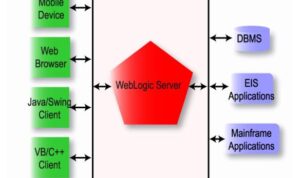Diving into the realm of cloud VPS hosting, this guide aims to shed light on the intricacies of this innovative hosting solution. From its definition to key features and setup process, this overview will equip you with the knowledge needed to navigate the world of cloud VPS hosting with confidence.
Overview of Cloud VPS Hosting
Cloud VPS Hosting, or Cloud Virtual Private Server Hosting, is a type of hosting service that utilizes virtualization technology to provide users with dedicated resources within a cloud environment. This means that instead of relying on a single physical server, cloud VPS hosting allows for multiple virtual servers to be created and managed on a cloud infrastructure.Traditional VPS Hosting, on the other hand, is hosted on a single physical server that is divided into multiple virtual servers.
While both types of hosting offer dedicated resources to users, cloud VPS hosting provides greater flexibility and scalability due to its cloud-based infrastructure.
Differences between Cloud VPS Hosting and Traditional VPS Hosting
- Scalability: Cloud VPS Hosting offers on-demand scalability, allowing users to easily upgrade or downgrade their resources as needed. Traditional VPS Hosting may have limitations in terms of scalability.
- Reliability: Cloud VPS Hosting is known for its high reliability and uptime, as it can automatically switch to another server in the event of hardware failure. Traditional VPS Hosting may experience downtime in such situations.
- Resource Allocation: Cloud VPS Hosting allows for more efficient resource allocation, as users can easily adjust their resources based on their requirements. Traditional VPS Hosting may have fixed resource allocations.
Benefits of Cloud VPS Hosting
- Flexibility: Cloud VPS Hosting offers greater flexibility in terms of resource allocation and management, allowing users to customize their server environment to suit their needs.
- Scalability: Users can easily scale their resources up or down based on their requirements, ensuring optimal performance without unnecessary costs.
- Reliability: Cloud VPS Hosting is known for its high reliability and uptime, as it can distribute resources across multiple servers to ensure continuous availability.
- Cost-Effective: Cloud VPS Hosting is often more cost-effective than traditional VPS Hosting, as users only pay for the resources they use, making it ideal for businesses with fluctuating resource needs.
Features of Cloud VPS Hosting
Cloud VPS hosting offers a range of key features that make it a popular choice for businesses and individuals looking for reliable and flexible hosting solutions. One of the standout features of Cloud VPS hosting is its scalability options, allowing users to easily adjust their resources based on their needs.
Additionally, the use of SSD storage in Cloud VPS hosting plays a crucial role in enhancing performance and speed.
Scalability Options
- Ability to easily upgrade or downgrade resources such as CPU, RAM, and storage.
- Pay-as-you-go pricing model, allowing users to only pay for the resources they use.
- Instant provisioning of resources, ensuring quick scalability without downtime.
Importance of SSD Storage
- SSD storage offers faster read/write speeds compared to traditional HDD storage, resulting in improved performance.
- Enhanced reliability and durability due to the lack of moving parts in SSDs.
- Better power efficiency, leading to lower energy consumption and reduced operational costs.
Setting up Cloud VPS Hosting
Setting up a Cloud VPS Hosting environment involves several steps to ensure a smooth and efficient operation. It is crucial to choose the right provider and implement proper security measures to protect your data and applications.
Choose the Right Cloud VPS Hosting Provider
When selecting a Cloud VPS Hosting provider, consider factors such as reliability, scalability, performance, pricing, and customer support. Look for providers that offer a user-friendly interface, flexible resources, and a secure infrastructure. Compare different providers and read reviews to make an informed decision.
- Check the provider's uptime guarantee and service level agreements.
- Assess the available resources, including CPU, RAM, storage, and bandwidth.
- Consider the scalability options and the ability to upgrade or downgrade your resources as needed.
- Evaluate the security measures in place, such as firewalls, DDoS protection, and data encryption.
- Review the pricing plans and any additional fees for services or support.
Security Measures for Cloud VPS Hosting
Security is a critical aspect of setting up Cloud VPS Hosting to protect your data and applications from cyber threats and unauthorized access. Implementing the following security measures can help enhance the overall security of your environment:
Regularly update your operating system, software, and applications to patch vulnerabilities and protect against security risks.
- Enable firewall protection to monitor and control incoming and outgoing network traffic.
- Use strong passwords and implement multi-factor authentication for an added layer of security.
- Encrypt your data to prevent unauthorized access and protect sensitive information.
- Backup your data regularly to ensure data recovery in case of a security breach or data loss.
- Monitor your Cloud VPS Hosting environment for any suspicious activities or anomalies that may indicate a security threat.
Managing Cloud VPS Hosting
Managing resources efficiently in Cloud VPS Hosting is crucial for maximizing performance and cost-effectiveness. By following best practices and utilizing monitoring tools, you can ensure smooth operation and optimal utilization of your virtual private server.
Best Practices for Managing Resources in Cloud VPS Hosting
- Regularly monitor resource usage such as CPU, memory, and disk space to identify any potential bottlenecks or areas of improvement.
- Implement auto-scaling mechanisms to dynamically adjust resources based on demand, ensuring optimal performance during peak times while minimizing costs during periods of low usage.
- Optimize your applications and databases to reduce resource consumption, enhancing overall efficiency and responsiveness.
- Utilize virtualization technologies effectively to allocate resources based on workload requirements, improving resource utilization and minimizing wastage.
Significance of Monitoring Tools in Managing Cloud VPS Hosting
Monitoring tools play a crucial role in managing Cloud VPS Hosting by providing real-time insights into resource utilization, performance metrics, and potential issues. These tools help you proactively identify and address any issues before they escalate, ensuring smooth operation and optimal performance of your virtual server.
Tips for Optimizing Performance in Cloud VPS Hosting
- Regularly update your operating system, software, and applications to leverage the latest features, enhancements, and security patches.
- Implement caching mechanisms to reduce load times and improve responsiveness, especially for frequently accessed data or content.
- Opt for SSD storage for faster read/write speeds and improved overall performance compared to traditional HDDs.
- Configure firewall rules and security measures to protect your Cloud VPS from potential threats and unauthorized access, enhancing the security and reliability of your virtual server.
Wrap-Up
In conclusion, cloud VPS hosting offers a flexible and scalable solution for hosting needs, with benefits such as improved performance and reliability. By following best practices and utilizing monitoring tools, you can optimize your cloud VPS hosting experience to ensure smooth operations for your website or application.
Commonly Asked Questions
What sets Cloud VPS Hosting apart from traditional VPS Hosting?
Cloud VPS Hosting offers greater scalability and flexibility compared to traditional VPS Hosting, allowing resources to be easily adjusted based on demand.
How do I choose the right Cloud VPS Hosting provider?
When selecting a Cloud VPS Hosting provider, consider factors such as reliability, performance, customer support, and pricing to ensure a suitable fit for your needs.
What security measures should I consider when setting up Cloud VPS Hosting?
Implementing robust firewall protection, regular software updates, and strong password policies are essential security measures to safeguard your Cloud VPS Hosting environment.







